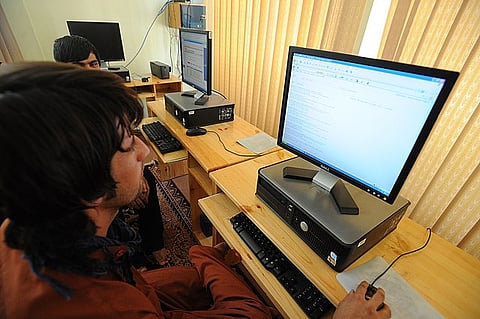

Afghanistan is experiencing a near-total communications blackout after Taliban authorities ordered a nationwide shutdown of internet and telecommunications services. The move, which began on the evening of Monday, September 29, 2025, has severed a critical lifeline for the country, disrupting everything from banking and business to family communications.
Internet watchdog NetBlocks confirmed the severity of the situation, reporting that national connectivity had plummeted to as low as 1% of ordinary levels, describing it as a "comprehensive, or total blackout" . The shutdown was implemented in a "stepwise manner," ultimately affecting mobile and fixed-line telephone services, which are largely routed through the same fibre-optic infrastructure . An anonymous government official told AFP that the shutdown would last "until further notice," warning that the banking sector, customs, and nearly all aspects of public life would be affected.
The nationwide blackout represents an escalation of restrictions that began earlier in September. At that time, Taliban authorities started severing fibre-optic connections in multiple provinces, including Balkh, Badakhshan, Takhar, Kandahar, Helmand, Nangarhar, and Uruzgan . The official justification for these measures has been to prevent "vice" and "immoral activities" in accordance with the Taliban's strict interpretation of Islamic law.
In mid-September, a Taliban provincial spokesperson in Balkh stated that the ban on fibre-optic internet was enacted on the direct orders of the group's supreme leader, Haibatullah Akhundzada . While officials claimed that "alternative options will be put in place across the country to meet connectivity needs," no such alternatives have been provided, and internet speeds had already become extremely slow or intermittent in the weeks leading to the complete blackout.
The communications blackout has had an immediate and devastating impact on the Afghan people. For the country's youth and business owners, the loss of internet access closes the door on online education and severely handicaps commerce . Torek Farhadi, a former senior advisor to international financial institutions, described the decision as a "deliberate decision to lead society to a blind spot".
The shutdown is particularly crushing for women and girls, who have already been systematically excluded from education and public life under Taliban rule. For many, the internet was their last remaining window to the outside world and a crucial means of accessing informal online learning after being banned from classrooms . One young Afghan woman expressed her despair, stating, "The Internet was the only thing we had left... I don't know how to feel hopeful anymore".
This digital crackdown fits into a broader pattern of restrictive measures imposed by the Taliban since they returned to power in 2021. The shutdown occurs just a year after the regime had touted the 9,350-kilometer fibre-optic network, largely built by the former US backed government as a national "priority" to connect Afghanistan with the world and lift it out of poverty. Its deliberate disconnection marks a dramatic reversal of that policy and further isolates the country, which is already grappling with one of the world's most severe humanitarian crises.